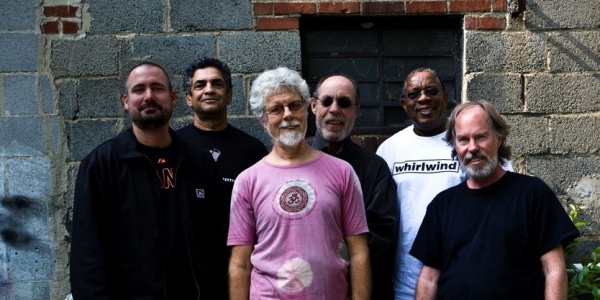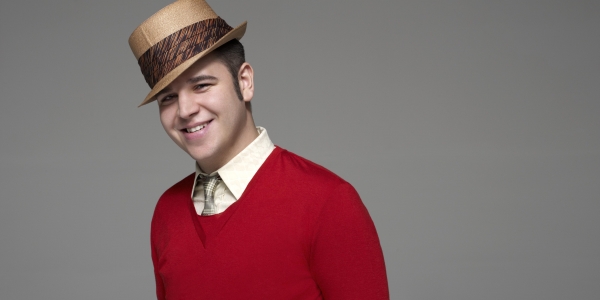The same acclamation could be applied to Little Feat; while contemporaries such as The Eagles spent the 1970s in a glistening sea of gold records and mountains of cocaine, Little Feat – perpetually ignored by commercial radio – gradually fell into cult obscurity, a position in which the band still find themselves today. “We had a song on our second record after we reformed [in 1987] that was a commercially attractive song,” guitarist Paul Barrere remembers. “But when the radio stations heard that it was Little Feat, they wouldn’t play it – the industry still wouldn’t touch us.”
Before forming Little Feat, Lowell George was a member of Frank Zappa’s Mothers Of Invention, before teaming up with keyboardist Billy Payne, bassist Roy Estrada (also formerly of the ‘Mothers) and drummer Richie Hayward. The story of George’s departure from the notoriously dictatorial Zappa’s band has been told often enough. “The story is that Lowell George wrote Willin, which had a reference to marijuana, but Frank wasn’t fond of drug references, so Lowell was asked to leave,” Barrere recalls.
Two critically acclaimed Little Feat albums failed to achieve commercial success, and Little Feat broke up. In 1972 Little Feat reformed, adding Barrere on second guitar and moving away from the band’s original r’n’b styling. “I’d known Lowell from the age of about 14,” Barrere says. “He was in the same high school, and he asked me to join Little Feat in 1972 when Roy Estrada left.”
Despite the release of the now classic Dixie Chicken album, commercial acclaim continued to avoid the band. Barrere says the success of bands such as The Doobie Brothers was the source of frustration, though Little Feat was reluctant to make an overt attempt at crossing over into the mainstream. “At one point when Lowell was alive he did try and find a commercial hit,” Barrere admits. “But the stars didn’t align, and it just didn’t fly. Lowell used to say that he really wanted to ‘break through the bullshit barrier’.”
As George drifted off into chemical excess, and the other members of Little Feat began to assume greater responsibility for song writing and musical direction, the Californian rock community became the epicentre of the 1970s pop scene. “No one really made any hits until The Doobie Brothers broke through,” Barrere explains. “But even while we were hoping to get some commercial success, the music was always the focus for all of us.”
George eventually died in 1979, a bloated, cocaine-addled shadow of his once proudly creative self. The surviving members of Little Feat had already been moving away from George’s original musical direction, embracing more jazz-rock sounds, at odds with the prevailing yacht rock trend sweeping California at the time. With George’s death, Little Feat were no more. “Lowell was definitely the leader of the band,” Barrere nods. “But he made me become more prolific and diverse. Lowell had some great thoughts on music – you can’t argue with that.”
In 1986 an impromptu jam session at an LA studio provided the catalyst for a Little Feat reformation. “There was a studio in LA where people like Jackson Browne and Bonnie Rait recorded,” Barrere remembers. “The studio had a plaque on the wall that was dedicated to Lowell. The studio asked us to come down and dedicate it. Everyone else was in town at the time, so it just worked out that we all got together and played. Billy [Payne] said we should do it again, which we eventually did, and we ended up writing some good songs.”
Little Feat returned to both the road and the recording studio, announcing their return to the studio with Let It Roll in 1988. With firstly Craig Fuller and later Shaun Murphy assuming vocal duties, Little Feat endeavoured to pick up where they had left off in the late 1970s. In 2010 tragedy struck the band again when drummer Richie Hayward died from liver cancer. A month before his death Hayward had joined his bandmates on stage at a gig in his adopted hometown of Vancouver for what would turn out to be Hayward’s last live appearance. “I didn’t think he was going to die that quickly, but we did think it was going to be his last show,” Barrere says. “He was definitely very weak. It was a very emotional event, but at the same time it was very uplifting, and the fans went absolutely crazy when he came on stage.”
Having endured commercial ambivalence for much of its career, Barrere says Little Feat are philosophical about their current relationship with the music industry. “It’s a lot harder these days, but there is a lot to be said for how the Internet has opened up distribution,” Barrere muses. “I don’t know if you need major labels these days – they’ll come to you if you get good music out there. And there’s still some good radio stations out there, especially internet radio stations.”
Barrere says Little Feat is continuing to evolve and explore new musical territory. “Absolutely,” he says. “All our music is going to be a bit gumbo – we’re constantly evolving. We’re a jam band.” Barrere is entirely happy with his role as a musician. “I’m glad to be known as a musician, not as a rock star,” he laughs.

